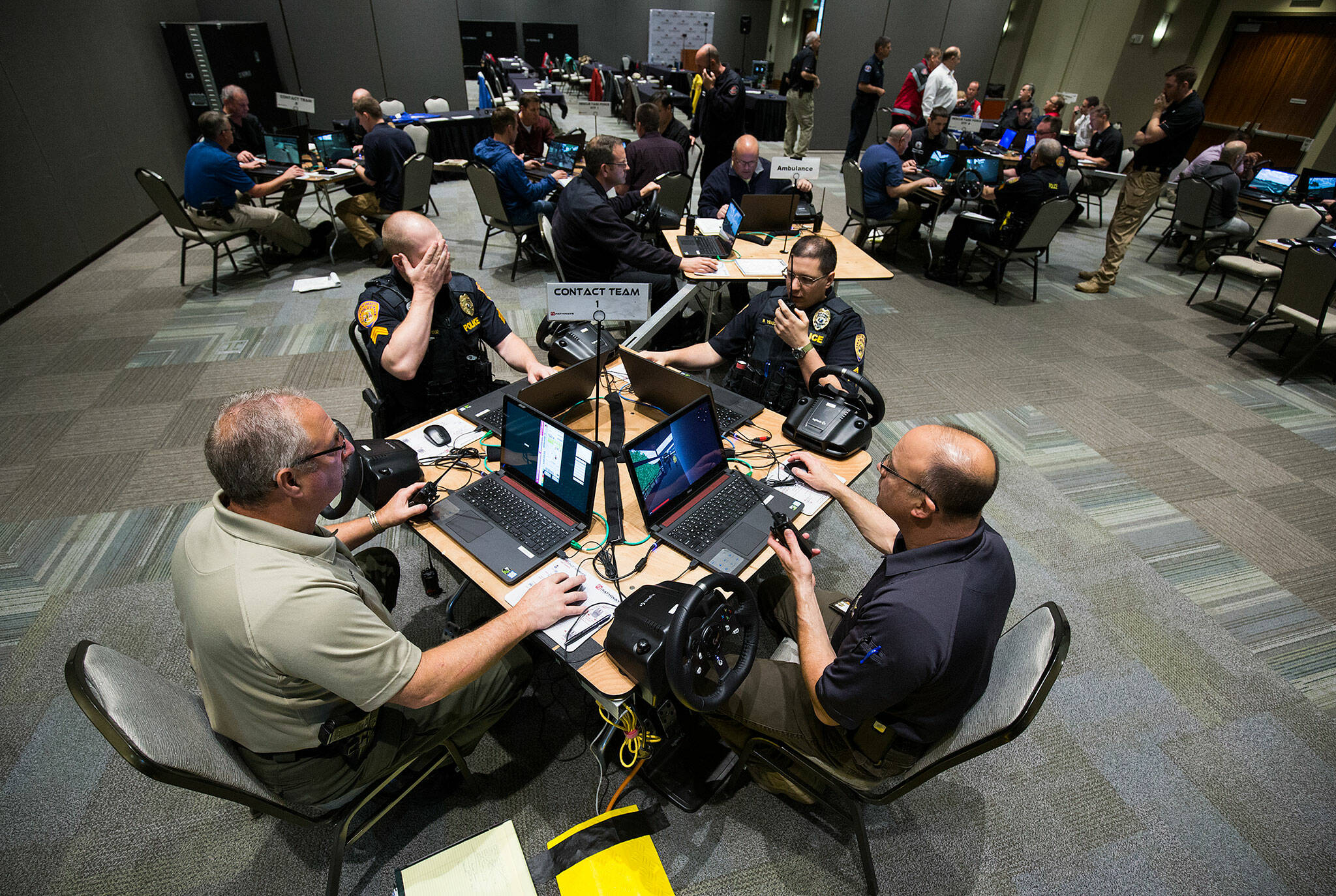OLYMPIA — Years after Snohomish County’s failed sales tax hike proposition for public safety, the Legislature could pass a bill to allow counties and cities to impose the tax without a public vote.
House Bill 2211 would grant local legislative bodies, like city or county councils, to impose up to an extra 0.3% sales tax, with all the revenue going to public safety. Rep. Mary Fosse, D-Everett, is a sponsor of the bill and Sen. John Lovick, D-Mill Creek, is a sponsor of its Senate counterpart.
This tax is already available to counties to impose, but they have to get consent from the voters first. If this legislation passes, jurisdictions could bypass the voters and impose it themselves.
In Snohomish County, 75% of the general fund budget is spent on public safety.
“The cost for services is rising higher than our revenue, therefore we’re left to prioritize criminal justice services over other services,” said Snohomish County Council member Megan Dunn, who supports the bill.
A few other local faces support it, including Snohomish County Executive Dave Somers, Everett Police Chief John DeRousse and Marysville Police Chief Erik Scairpon.
If Marysville had extra funds for public safety, Scairpon said he would want to prioritize funding for police staffing.
He would want to roll out a full time bike patrol team, and dedicate more staffing in north Marysville, where he said assaults and property crime have increased.
Although Scairpon supports House Bill 2211, he was more interested in House Bill 2231, which would impose a sales tax to be used specifically for recruiting and retaining law enforcement officers.
The main difference? The tax is a 0.1% credit against the state’s 6.5% sales tax rate, not an extra charge for customers at the register.
Marysville’s staffing levels are in decent shape, Scairpon said. He reported five vacancies in the police department last month, compared to 22 vacancies around two years ago. The city offers a starting salary between $78,000 to $108,000 for new officer hires. The department also offers a $20,000 signing bonus to lateral officers.
Looking ahead at Marysville’s future growth, Scairpon knows there is more work to do.
“When we’re a community of 100,000 by 2044, we know that 80 police officers isn’t going to be enough,” he said.
Washington state has a rate of 121 officers per 100,000 residents, according to the Washington Association of Sheriffs and Police Chiefs.
The national average is 240 officers per 100,000 residents, according to the Federal Bureau of Investigation.
House Bill 2231 has yet to be voted out of its committee.
Even as three cities in the county — Lynnwood, Mill Creek and Mukilteo — have the highest sales tax rate in the state at 10.6%, Dunn said she thinks people would be supportive of a sales tax increase.
“Public safety is one of those things that people are just really concerned about right now,” she said.
If the 0.3% tax were imposed, the cities named above would reach a rate of 10.9%, surpassing the highest rate anywhere on the West Coast.
In 2016, a countywide proposition to increase the sales tax by 0.2% for public safety failed by fewer than 400 votes.
At the time, the highest sales tax rate in the county was 9.9% in Mill Creek. A few months later, voters approved the Sound Transit 3 proposal, a regional transportation plan that raised sales taxes in Everett and south county by 0.5%.
Allowing councils to impose the tax themselves is a critical piece of the bill, Dunn said.
“These decisions should be left up to the officials who best know their communities,” she said.
Dunn said it’s unfortunate that sales taxes are so regressive, affecting lower-income communities the most, but counties and cities are limited in the ways they can raise revenue for services like public safety.
“It’s really the only option we have,” she said.
Council member Nate Nehring disagrees. He opposes the idea of increasing sales taxes without letting the public decide for themselves.
“If elected officials want to raise local sales tax rates, they have a responsibility to make the case to voters as to why the tax increase should be approved,” he wrote in an email.
Ultimately, voters should decide because they will be the ones bearing the cost of the increase in their daily purchases, he said.
In 2021, the County Council increased the sales tax rate by 0.1% to fund affordable and emergency housing, without a public vote. At the time, Nehring, along with 57 other local elected officials, urged his fellow council members to put the question to the voters instead.
Since the affordable housing sales tax went into effect in April 2022, it is expected to generate more than $118 million by 2026.
While elections to increase sales taxes take time and resources, the county needs dedicated funding for public safety now, Dunn said.
If imposed, the tax is restricted in how it can be spent. Before making a final decision, Dunn said the County Council would devise a plan to split up the funds.
House Bill 2211 and its counterpart Senate Bill 6076 have yet to receive a vote to leave their respective committees.
Jenelle Baumbach: 360-352-8623; jenelle.baumbach@heraldnet.com; Twitter: @jenelleclar.
Talk to us
> Give us your news tips.
> Send us a letter to the editor.
> More Herald contact information.

























